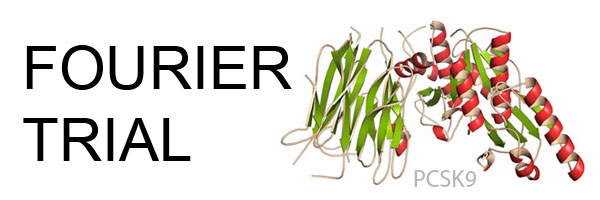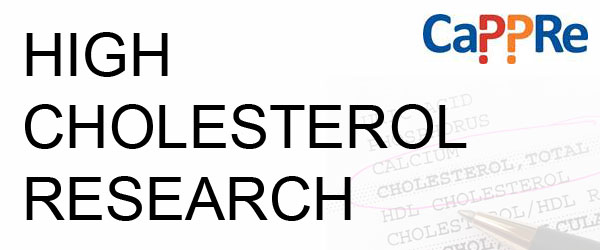May 2017





 Exciting news particularly for people with familial hypercholesterolaemia (FH) with the presentation in March 2017 of the much anticipated trial of the PCSK9 inhibitor evolocumab (Repatha).
Exciting news particularly for people with familial hypercholesterolaemia (FH) with the presentation in March 2017 of the much anticipated trial of the PCSK9 inhibitor evolocumab (Repatha).
The Past
It is likely to have been as important an event as the announcement of the first successful trial of a statin (simvastatin) in 1994.
Statins have of course revolutionised the treatment of FH which had previously been a serious cause of premature heart disease. However even today with the highest doses of statins together with the drug ezetimibe (Ezetrol) many patients with FH cannot lower their LDL cholesterol levels to the desired concentration in blood.
We do know that the lower the LDL level the lower the risk of heart attack and other forms of arterial disease. With each major trial since the 1994 report average LDL levels have been reduced further guiding doctors to targets for LDL which the clinical trials have indicated to be most beneficial.
The Fourier Trial
Many lipid centres in major hospitals have been trialling the PCSK9 inhibitors for the last 4 years with astonishing falls in LDL levels. However it is essential to show that this translates into better outcomes that is significantly fewer heart attacks, strokes and obstruction of coronary arteries. This was achieved in the FOURIER trial of the drug evolocumab marketed in Australia as Repatha.
In a large double-blind controlled study of 27,564 patients with established cardiovascular disease, all receiving optimal statin therapy with half the group also treated with evolocumab and the other half a placebo or inactive compound.
The Trial Results
From an already low level of LDL (2.4 mmol/L due to statin and ezetimibe if needed) the LDL was reduced to a record low of 0.78 mmol/L on average (59% reduction beyond that achieved by statins) without any serious safety issues. The results were significant reductions in myocardial infarcts (heart attacks), strokes and the need for dealing with new blockages in arteries. Such trials have several different pre-determined statistical means for evaluating the result. These provided significant reductions of combinations of new events of between 15% and 25% over an average period of a little over 2 years. There was however no significant reduction in mortality from the heart attacks or stroke, possibly because the trial was not sufficiently long. Trials are often stopped when it becomes clear that the active treatment is significantly better than the placebo intervention. In this trial the difference between the active and placebo continued to separate over time suggesting bigger differences if the trial had been continued.
The large fall in LDL not seen with any previous medication was observed in the many earlier shorter-term studies that investigated the efficacy of the drug and its safety. In those studies there was a slight suspicion of cognitive impairment. However in a simultaneous trial to FOURIER (called EBBINGHAUS), cognitive function tests were carried out repeatedly in nearly 2000 patients in FOURIER with no significant deterioration in cognitive function (the small numbers in whom some impairment occurred were identical in the placebo and active arms). A concern with statins that diabetes may be induced (although this appears to occur in those who were pre-diabetic) was not seen in the FOURIER trial.
What is PCSK9 and what are PCSK9 Monoclonal Antibodies?
PCSK9 (short for a very lengthy name) is a protein that circulates in the blood and binds to the LDL receptor which is responsible for removing LDL from blood in an orderly fashion. As you the readers will know FH is due to a genetic reduction in the number of properly functioning LDL receptors resulting in less efficient removal of circulating LDL predisposing to atherosclerosis in arteries. In 2006 American investigators reported families, mainly of African origin, who produced much lower amounts of PCSK9 than normal. They had very low LDL cholesterol levels and experienced nearly 90% fewer heart attacks than people with usual PCSK9 levels. Presumably such people had more LDL receptors because these were not being bound and destroyed rapidly. The more functioning receptors the lower the LDL level. (Statins are effective because LDL receptors are induced to function more efficiently). PCSK9 inhibitors improve the survival of LDL receptors.
It now seems likely that nearly 10% of people with typical FH produce too much PCSK9 (the opposite of having too little as in the originally described families with low LDL). That of course means excessive amounts of LDL and greater risk of heart attack.
The drug such as evolocumab is an antibody that is specifically developed to bind and inactivate PCSK9 in the circulation allowing LDL receptors to survive longer. It has to be injected subcutaneously under the skin with a device that makes injecting simple and almost painless.
The Future
Producing antibodies that target one specific protein is expensive so the cost of Repatha is high as well as that of another drug alirocumab or Praluent with similar efficacy and safety (but not yet tested in a large trial such as FOURIER).
However, recently Repatha was approved to be subsidised under PBS (Pharmaceutical Benefits Scheme) for severe genetic homozygous hypecholesterolaemia where the individual receives abnormal genes from both parents. It is available under PBS for people who qualify on the basis of what is known as the Dutch Lipid Score that takes into account the level of LDL, the presence of premature cardiovascular disease in the patient and/or first-degree relatives, a history of familial hyperecholcesterolaemia, and the presence of cholesterol deposits as an arc over the cornea or in tendons such as the Achilles tendon.
Hopefully PBS approval will be granted to other categories such as patients with premature cardiovascular disease whose LDL levels are inadequately lowered with statin and for those who are clearly unable to tolerate statins. It will stimulate both medical practitioners to diagnose FH and for subjects with FH to seek out relatives to be screened for their cholesterol level.
We have entered a further exciting episode in countering cardiovascular disease.



 Community and Patient Preference Research (CaPPRe) are conducting research on behalf of a pharmaceutical company with people who have high cholesterol.
Community and Patient Preference Research (CaPPRe) are conducting research on behalf of a pharmaceutical company with people who have high cholesterol.
CaPPRe are specialists in conducting research to determine people’s preferences, in this case what people value, need and expect in the treatment of high cholesterol.
CaPPRe invite you to participate in the research which will involve a 15 – 20 minute online survey.
Your participation will be valuable in improving the understanding of what is important to you in the care of your high cholesterol and helping make better treatments available in Australia for high cholesterol patients. The results will be published so others can also learn from them.
If you are interested in participating in the survey or would like to know more about the research, please click on the link http://bit.ly/2o234wB.
If you know someone else with a history of high cholesterol who may be interested in this research, maybe a relative or friend, please feel free to forward the link to them.
CaPPRe respects your privacy. Your details will not be forwarded to any other parties; nor will you be contacted by CaPPRe for anything other than this research project unless you choose to be. All responses are treated with the strictest confidentiality. The report of the research findings will be presented in aggregate form, with no individual person identified. CaPPRe complies with the Privacy Act 1988 (Cth) and the Australian Privacy Principles in relation to the collection and disclosure of information.
If you have any questions or require any additional information please contact CaPPRe on (02) 9152 8603 or email [email protected].
Copyright © 2017 FH Australasia Network. All rights reserved.
Our mailing address is:
FHWA
University of Western Australia
Rear 50 Murray Street
PERTH WA 6000
Why did you receive this email?
When you signed up for the National FH Registry you ticked the box for information.
Don’t want to receive emails in the future?
You can unsubscribe by emailing [email protected] with UNSUBSCRIBE in the subject line.

